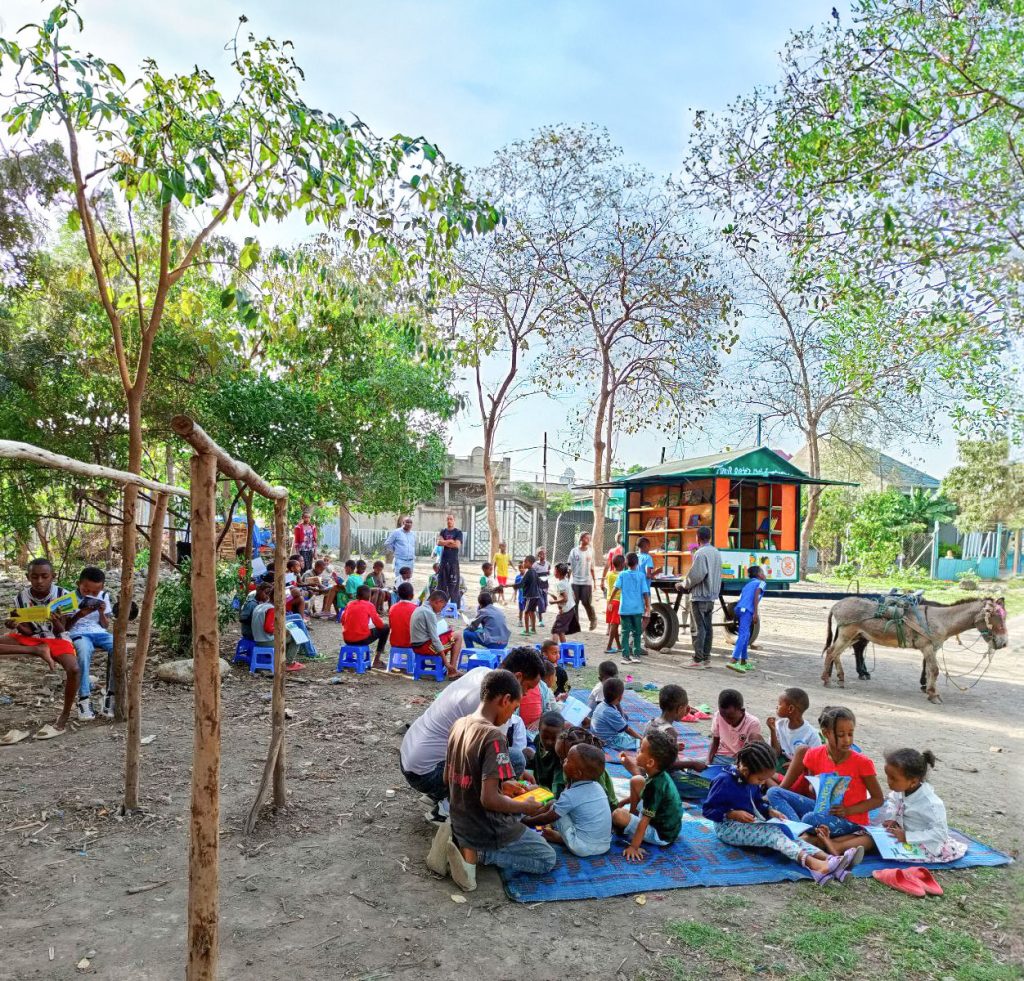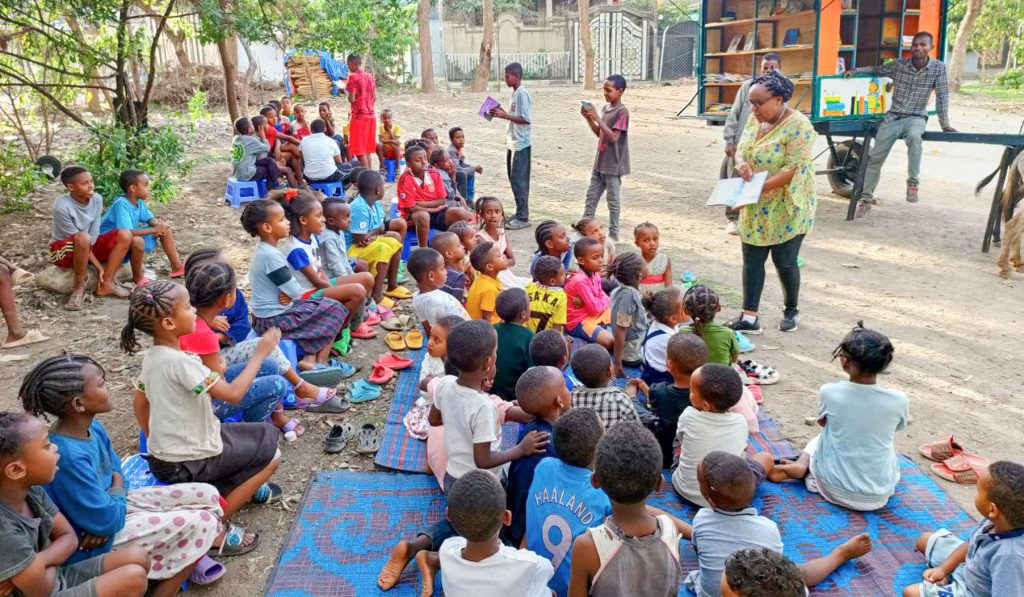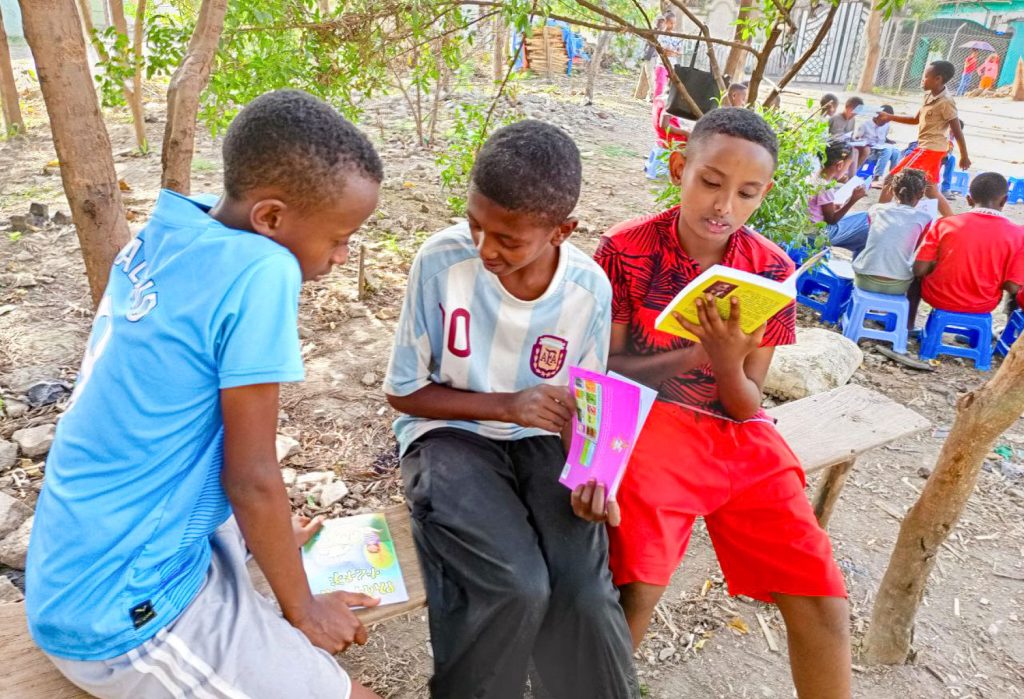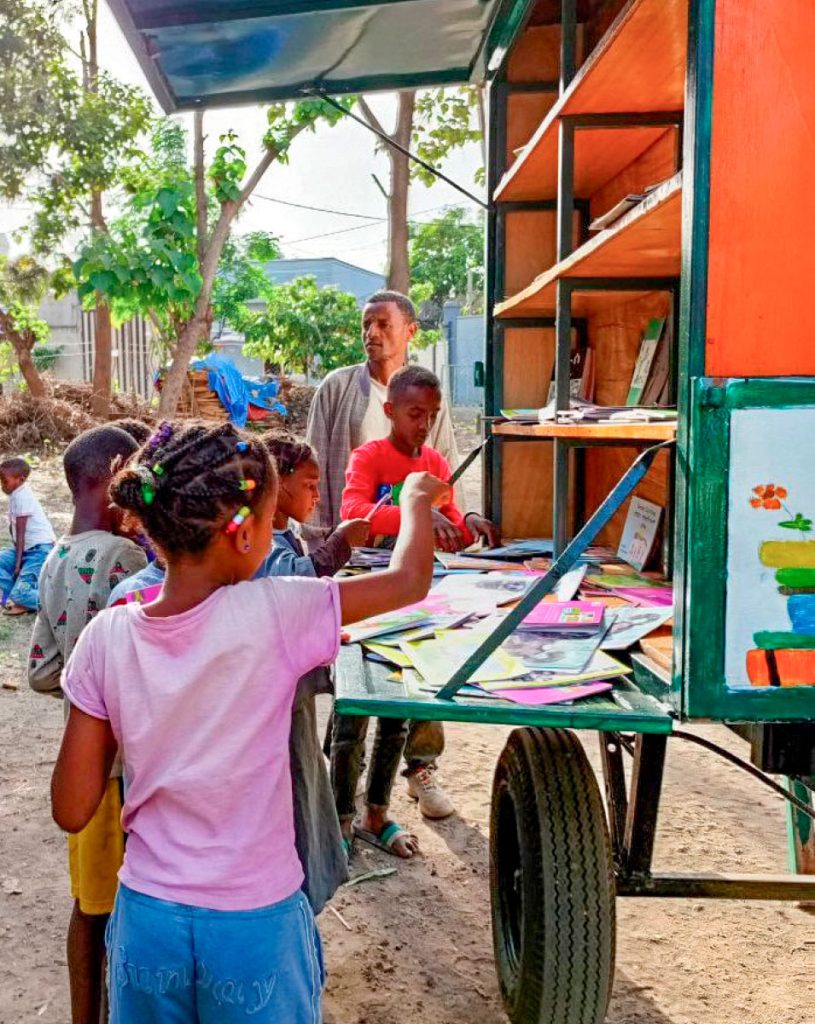
In the villages surrounding Hawassa City, Ethiopia, an unconventional yet heartwarming sight catches the eye: a small caravan of donkeys laden not with burdens of trade, but with books. This is the Donkey Mobile Library, an ingenious initiative aimed at nurturing a love for reading and education among children in the semi-urban areas which otherwise have limited access to educational resources.

Rotary Clubs of Addis Ababa Central Mella, RID 9212, and NC Hickory, RID 7660, USA, support this programme that is being run by Ethiopia Reads, an NGO founded by Yohannes Gebregeorgis. He was the brain behind the ‘donkey library’, says Yemisrach Worku, the NGO’s country director. “He designed the mobile library to reach out to children who do not have access to books or education, especially in the southern part of Ethiopia which is densely populated. The idea was to introduce books to children and adults in these areas, and lure them into the world of knowledge and discovery. We are pleased that some parents, enthused by the transformation, have enrolled their children in schools.”
Ethiopia Reads has set up 70 children’s libraries across the country, including Addis Ababa and Hawassa City, and prints and distributes storybooks for children in different local languages. ‘Horse powered literacy’ projects are run to include children in remote areas of Ethiopia. Books are carried on horse-driven carriages which are stationed in various hamlets for a few days as facilitators introduce the joy of reading to the villagers.
Last Rotary year the two Rotary clubs collaborated to sponsor the donkey mobile library programme in some of the villages. “We take care of the operating expenses such as wages for the men accompanying the cart and their food. The US club has also donated several foreign books for the NGO’s library,” says Ephrem Berhanu, past president of the Ethiopian Rotary club.
These books are translated in African languages; “there are 18 dialects spoken across various regions here,” smiles Yemisrach who is also a member of the Ethiopian Rotary club.

The donkeys are not just a gimmick — in rural Ethiopia and towns like Hawassa, horse-drawn buggies and donkey carts are a normal form of transport, she says. The project also attempts to teach children to respect animals. “Donkeys here are generally despised and often ill-treated, but these working donkeys are received with love and excitement among children.”
The mobile library comprises a brightly coloured wooden cart, pulled by two donkeys. The sides of the cart, when folded down, displays shelves of books. The facility visits primary schools bordering the Ethiopian cities for two days every week. “Children are so excited that they run out to receive the donkey cart that trundles down into the village school.” It is parked in each school for two hours and the animals are unhooked from their shafts and allowed to rest. The cart has stools for the children to sit comfortably and immerse themselves in the books. School teachers and volunteers read aloud to them, engage them in roleplays, and even teach math through games. The library is stocked with foreign books and several native ones sourced from the local market. Reading in mother tongue is encouraged in the early grades.

When it is time for the mobile library to pack up and move on to its next destination, children neatly pile their stools into the cart and arrange the books on the shelves, and the donkeys are harnessed to go to the next place.
These donkey libraries are more than just mobile book collections; they are beacons of hope, nurturing a love for reading and learning in places where access to educational resources is limited. “The children have made great strides in their learning and behaviour after getting regular access to books. Many of them have developed critical thinking skills and their parents are happy to see this positive transformation,” she says.
Five donkey libraries are operating in semi-urban and rural areas around Hawassa, serving about 3,000 children. Yemisrach wants to scale up the services to more regions and is looking for support from Rotary clubs in India.






